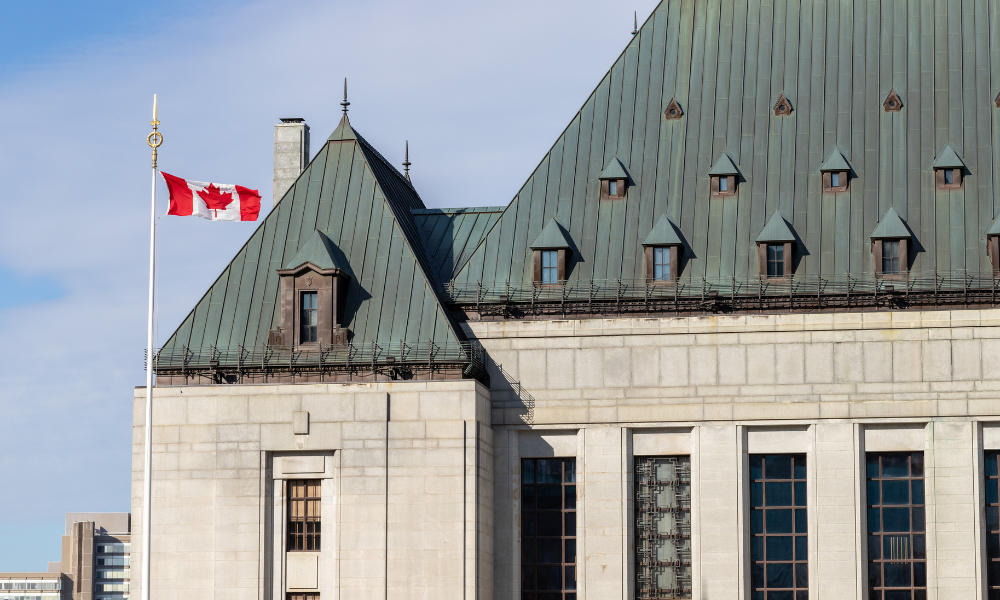
Criminal appeals make up most of the cases the SCC will consider starting January

Criminal appeals are slated to feature heavily in the Supreme Court of Canada’s upcoming winter session, making up more than two-thirds of the 22 cases the high court plans to consider.
Among them is His Majesty the King v. Lucas Hanrahan, which the SCC will start hearing on Jan. 21. In 2021, a jury found Hanrahan was not guilty of sexual assault. The Crown appealed, arguing that the trial judge wrongly restricted its examination of Hanrahan’s text messages with the complainant. The Crown also argued that the trial judge improperly admitted evidence about the complainant’s prior sexual history.
A majority of the Court of Appeal of Newfoundland and Labrador dismissed the Crown’s appeal, concluding that the trial judge’s interventions concerning the text messages were reasonable. The majority also found that the trial judge was permitted to admit the prior sexual history evidence.
The SCC will consider whether the Court of Appeal erred by affirming the trial judge’s decisions.
On Jan. 23, the high court will hear the appeal in Awale Hussein v. His Majesty the King and consider questions on so-called Corbett applications – a procedure defendants can use to prevent prosecutors from cross-examining them about their prior convictions.
The case involves a man who was fatally stabbed multiple times in a bedroom. Hussein was charged with second-degree murder. At trial, defence counsel brought an application to restrict the Crown’s ability to cross-examine Hussein on his extensive criminal record, but the trial judge dismissed the application. A jury convicted Hussein of second-degree murder, and the Ontario Court of Appeal dismissed his appeal.
The SCC will consider whether it should clarify the standard of review for deciding Corbett applications and whether the court should resolve inconsistencies in how it treats prior convictions for violent offences in these applications.
“In this case, we are asking the court to provide guidance on when and how an accused person who testifies at their trial can be cross-examined by the Crown on a prior criminal record,” said Matthew Gourlay, a partner at Henein Hutchison Robitaille LLP who represents Hussein.
“We are asking the court to adjust the test it laid out in R. v. Corbett (1988) to better protect accused people from the prejudicial impact of prior criminal convictions that would otherwise be inadmissible if the accused did not testify,” Gourlay added. “We argue that adopting a more stringent test would encourage more accused persons to testify and better serve the truth-seeking function of the criminal trial.”
On March 21, the high court will start hearing the appeal in P.B. v. His Majesty the King, which will look at whether a trial judge failed to analyze the reliability of recovered memories based on flashbacks correctly.
At trial for the sexual assault case, the complainant was the only witness. P.B., the defendant, argued that the complainant’s testimony was not sufficiently reliable to prove he was guilty beyond a reasonable doubt because her memory of the events was based on flashbacks. The trial judge accepted the complainant’s evidence and convicted P.B., and he appealed.
A majority of the Court of Appeal for Saskatchewan dismissed his appeal, finding that the trial judge’s conclusion on the reliability of the complainant’s evidence was reasonable.
In a joint statement, the defendant’s counsel, Brady Knight of Knight Law and Catriona Kaiser-Derrick of the Community Legal Assistance Services for Saskatoon Inner City Inc., said, “This appeal provides an opportunity for the court to reinforce the importance of trial judges providing sufficient reasons. Without reasons that explain what the trial judge decided and why they did so, an accused’s right to appellate review is impermissibly hindered.”
The lawyers added that the case also allows the SCC to “weigh in on the degree to which trial judges must caution themselves when dealing with evidence derived from recovered memories – a situation that appears to be coming up on a regular basis in trial courts across the country.”